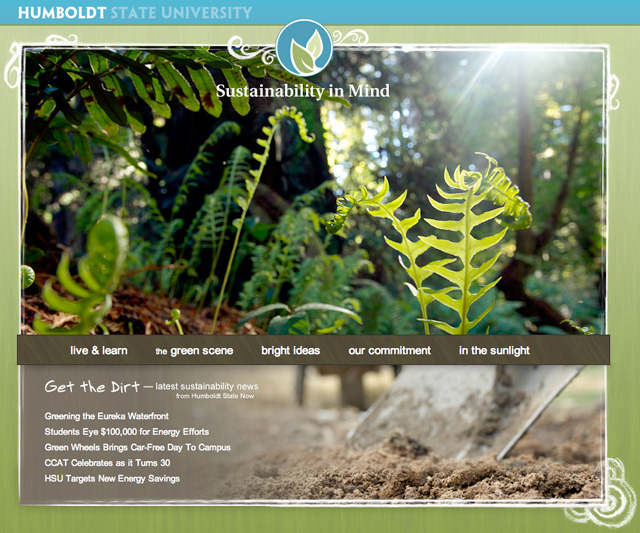
HSU’s sustainability Web site details the many initiatives and policies the University has launched to reduce its ecological footprint. The site also gives users information on sustainability-focused clubs and organizations, profiles members of the HSU and Humboldt County communities, offers advice for greening your daily life, and more.
“The new sustainability Web site will serve as a hub where members of the community can come to learn about sustainability and what’s happening in our region,” said TallChief Comet, HSU’s Sustainability Coordinator. “The site allows us to broadcast HSU’s environmental responsibility to an even broader audience.”
The Web site also features regularly updated articles concerning campus news related to sustainability, a calendar of eco-friendly events and a guide for undergraduates wishing to focus their studies on environmental issues.
HSU has been a leader in environmental responsibility for decades, going green long before the idea gained mainstream acceptance. For 30 years the University’s Campus Center for Appropriate Technology — a first-of-its-kind live-in demonstration home for sustainability run by three student co-directors — has annually exposed over 2,000 students, faculty and staff to the concept of environmental responsibility.
The University’s Schatz Energy Research Center, in a collaborative effort between students and faculty, recently opened a hydrogen fueling station on campus that powers a converted Toyota Prius with clean, renewable energy. The project represents the northernmost link on California’s “Hydrogen Highway,” a breakthrough initiative that looks to make hydrogen-powered travel across the state a viable option.
These two examples typify the University’s well-earned reputation as an institution that creates environmental leaders for the future. It’s that reputation—developed over the years by visionary students, faculty and staff—that led the Princeton Review to name HSU one of its select few “Colleges with a Conscience.”